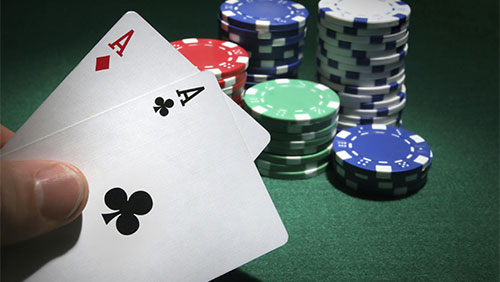 Poker players keeping tabs on the Lawrence DiCristina case were met with some bad news after the U.S. Supreme Court rejected a DiCristina’s appeal to overturn a US Court of Appeals ruling last August that convicted DiChristina of violating the federal Illegal Gambling Business Act (IGBA) of 1970 by running a for-profit poker club in the back room of a New York City warehouse.
Poker players keeping tabs on the Lawrence DiCristina case were met with some bad news after the U.S. Supreme Court rejected a DiCristina’s appeal to overturn a US Court of Appeals ruling last August that convicted DiChristina of violating the federal Illegal Gambling Business Act (IGBA) of 1970 by running a for-profit poker club in the back room of a New York City warehouse.
Poker players have been in full support of DiCristina’s appeal, a lot of whom believe that the lower court ruling was being unfairly harsh on poker. Fears that the 1970 law would also target other games like Bridge and Scrabble prompted players from those games to back the appeal, which argued, to no avail it turns out, that “players involved in organizing or running games with even moderate stakes may be unwittingly committing federal felonies.”
True to form, the Justice Department went to great lengths to request a rejection of the appeal by the high court, claiming that those fears expressed by poker players are unfounded. According to the DOJ’s interpretation of the IGBA, the law has to satisfy a number of criteria to meet the definition of an “illegal gambling business.” First, the operation was in violation of New York State law; second, its smooth running required the attention of five or more persons; and third, it takes in at least $2,000 a day in revenue, or have been in operation on a regular basis for more than 30 days. Sadly for DiCristina, the highest court in the land agreed with the US Court of Appeals’ decision.
To quell those fears from other poker players, U.S. Solicitor General Donald Verrilli likewise told the justices that the appeals court decision last August does not suggest that participants who play a “friendly evening of poker have committed a federal crime.”
Tom Goldstein, a lawyer who filed a brief backing DiCristina for the million-member Poker Players Alliance, also backed that assertion by the Solicitor General, explaining that poker games are “generally legal under state laws as long as the person running the event isn’t taking money from the pots or charging the players”.
Unfortunately, reports indicated that DiCristina’s scheduled poker games in a Staten Island warehouse had the makings of being run professionally. Not only were armed security hired for the event, but total wagers per night would amount to tens of thousands of dollars with DiCristina collecting five percent of the pot.
Ultimately, those fears that the 1970 IGBA law would begin cracking down on poker players should rest easy, at least for now. You can still play the game provided it doesn’t raise the alarm of the IGBA’s rather outdated law.





